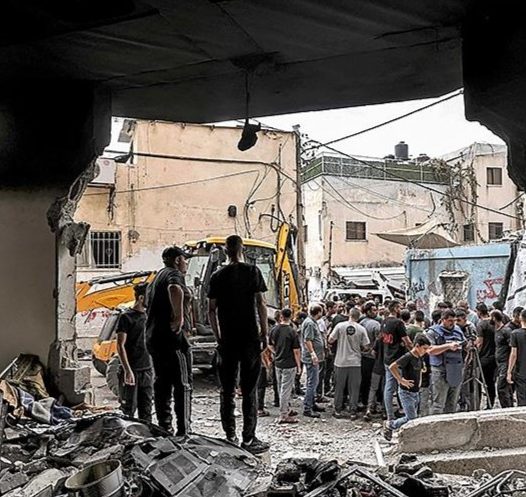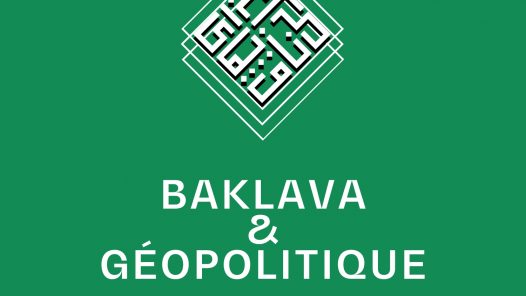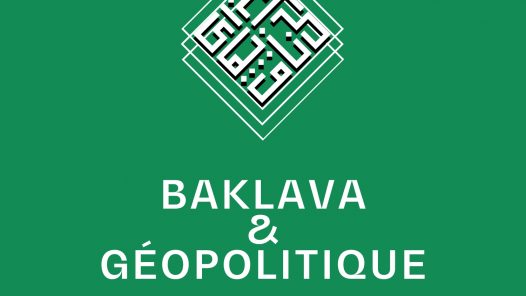Podcast: Play in new window | Download
The Middle East is facing devastating consequences of the conflict, including the deaths of civilians in Gaza, Lebanon, and Israel, and the increasing risk of a wider regional war. Today, we are exploring the political motivations behind the actions of the various actors, with particular attention paid to Israeli Prime Minister Benjamin Netanyahu and his policies towards Iran.
The Middle East finds itself teetering on the precipice of a regional war, with the latest escalation marked by Iran’s unprecedented ballistic missile attack on Israel. This act of aggression, launched in retaliation for Israel’s targeted killing of Hezbollah leader Hassan Nasrallah and its military operations in Lebanon, has sent shockwaves through the region and beyond.
This briefing reviews key themes and facts from provided French and English news sources highlighting the escalating tensions in the Middle East with a focus on the Israeli-Palestinian conflict, Hezbollah’s involvement, and Iran’s retaliatory actions.
This briefing reviews key themes and facts from provided French and English news sources highlighting the escalating tensions in the Middle East with a focus on the Israeli-Palestinian conflict, Hezbollah’s involvement, and Iran’s retaliatory actions.
The Cycle of Violence:
The conflict began last year on October 7th when Hamas militants launched a surprise attack on Israel, killing 1,200 people and taking 250 hostage34. Israel responded with a devastating offensive in Gaza, resulting in the deaths of over 41,000 Palestinians, according to Palestinian health authorities.
The situation escalated further when Israel, emboldened by its successes against Hezbollah, launched a ground incursion into southern Lebanon, targeting the group’s infrastructure. This operation, the first of its kind since 2006, has resulted in casualties on both sides, with eight Israeli soldiers confirmed killed in clashes with Hezbollah fighters.
Iran’s missile attack, which involved over 180 ballistic missiles, represents a significant escalation and has raised fears of a wider conflict. While Israel suffered no reported casualties from the missile strikes, the attack has heightened tensions and fears in the region.
Key Players and Perspectives:
● Israel: Israel has vowed to retaliate for Iran’s attack and has warned of severe consequences. The Israeli government, led by Prime Minister Benjamin Netanyahu, sees the conflict as an existential one and is determined to defend itself against what it perceives as an Iranian threat.
Iran: Iran has framed its missile attack as a decisive response to Israel’s aggression and has warned Israel against further escalation. The country’s leadership, under Supreme Leader Ali Khamenei, sees Israel’s actions as a threat to its regional interests and is determined to support its allies, including Hezbollah.
Hezbollah: The Lebanese militant group, backed by Iran, has vowed to continue its resistance against Israel. The group has suffered significant losses, including the death of its leader, but remains a potent force in Lebanon.
Persian Gulf States: While supporting the Palestinian cause, Gulf states are wary of further Israeli escalation and fear the potential consequences of a wider conflict. They are urging restraint and calling for a ceasefire between Israel and Hamas, as well as between Israel and Hezbollah.
The current situation is extremely volatile, and the risk of a full-blown regional war is very real. The cycle of violence, fueled by deep-seated animosity and mistrust, shows no signs of abating. The international community’s response has been largely ineffective. While there have been calls for restraint and a ceasefire, concrete actions to de-escalate the situation have been lacking. The conflict has a devastating impact on civilians. In Gaza, the humanitarian situation is dire, with the population facing a severe shortage of food, medicine, and other essential supplies. In Lebanon, hundreds of thousands of people have been displaced by the fighting.
The assassination of key leaders, while potentially disrupting short-term operations, does not guarantee long-term stability. History has shown that militant organizations often survive and evolve after the loss of their leaders. The conflict has highlighted the deep divisions in the Middle East and the complex web of alliances and rivalries that exist in the region. It has also exposed the limitations of international diplomacy and the urgent need for a new approach to resolving the long-standing Israeli-Palestinian conflict.
The coming days and weeks will be critical in determining the trajectory of this conflict. The actions of all parties involved, as well as the response of the international community, will have a profound impact on the future of the Middle East.
The Israeli-Palestinian Conflict: A Multifaceted Crisis (Short-Answer Questions)
- What event is considered to be the beginning of the Second Intifada?The events of October 12, 2000, in Ramallah, where two Israeli reservists were lynched by a Palestinian mob after being arrested at a checkpoint, are considered the beginning of the Second Intifada. This coincided with the funeral of a 17-year-old Palestinian killed by Israeli forces during protests.
- How did Abdelaziz Salha, “the man with the red hands,” become a symbol of the conflict?Abdelaziz Salha became a symbol of the conflict due to a photograph of him displaying his blood-stained hands after the lynching of two Israeli reservists in 2000. This image became ingrained in the Israeli psyche and resurfaced during pro-Palestinian demonstrations, highlighting the deep-seated emotions and trauma associated with the conflict.
- Why was Jadd Hilal-Giuliani deeply affected by the events in Beirut even though he was far away in Corsica?Despite being physically distant in Corsica, Jadd Hilal-Giuliani was profoundly affected by the events in Beirut because of his deep personal connection to the city and the historical trauma his family endured there. The attack triggered a visceral emotional response rooted in the shared experiences and collective memory of his lineage.
- Describe the terrorist attack that took place in Tel Aviv’s Jaffa district on October 1st, 2024.On October 1st, 2024, two Palestinian assailants opened fire on a tram and pedestrians in Tel Aviv’s Jaffa district, killing seven people and injuring sixteen. The attackers, identified as Muhammad Khalef Saher Rajab and Hassan Muhammad Hassan Tamimi from Hebron, West Bank, were apprehended, with one killed and the other injured.
- What was the immediate aftermath of the Tel Aviv attack, and how did it impact the investigation?Immediately following the Tel Aviv attack, air raid sirens blared as Iran launched a barrage of missiles at Israel. This event caused widespread panic and temporarily suspended the investigation as police sought shelter. This convergence of events highlights the interconnected nature of the conflict and its potential for rapid escalation.
- What was the significance of the Khan Younès bombing on October 2nd, 2024?The Khan Younès bombing on October 2nd, 2024, was significant because of its high civilian death toll. Over 50 Palestinians, including many women and children, were killed during an Israeli ground operation and airstrikes. This event underscores the ongoing humanitarian crisis in Gaza and the devastating impact of the conflict on civilians.
- Explain the main concern of the International Committee of the Red Cross (ICRC) regarding the escalating conflict in Lebanon.The ICRC’s primary concern is the potential for a “humanitarian catastrophe” in Lebanon as the conflict escalates. With rising civilian casualties and displacement, the ICRC emphasizes the urgent need for a ceasefire and for all parties to respect international humanitarian law, protecting civilians and essential infrastructure like hospitals.
- What is the EU’s stance on the escalating conflict in the Middle East, and what criticisms have been leveled at its approach?The EU has largely been absent from attempts to mediate a ceasefire in the Middle East, drawing criticism for its lack of engagement. While emphasizing the need for a two-state solution, the EU has been accused of focusing primarily on managing migration from the region and pursuing transactional partnerships that prioritize its own interests.
- How has public opinion in the UK shifted regarding Israel’s actions in the conflict?Public opinion in the UK has shifted significantly, with a record low of 17% holding a favorable view of Israel and two-thirds holding an unfavorable view. This change in sentiment reflects growing unease with Israel’s actions in the conflict, with 70% of UK voters believing it likely that Israel has committed war crimes.
- What is the GCC’s position on the conflict, and what potential dilemmas do they face as the situation evolves?The GCC supports a ceasefire between Hamas and Israel, advocating for a two-state solution as the path to lasting peace. However, they face a complex dilemma as they are wary of both a resurgent Israel potentially dominating the region and a power vacuum left by a significantly weakened Iran, which could create instability and empower other regional actors.
Conclusion:
The situation in the Middle East remains highly volatile and dangerous. The escalating conflict, fueled by decades-long tensions and fueled by recent events, has far-reaching implications for the region and the world. The international community faces a significant challenge in mediating a peaceful resolution and preventing further bloodshed.




